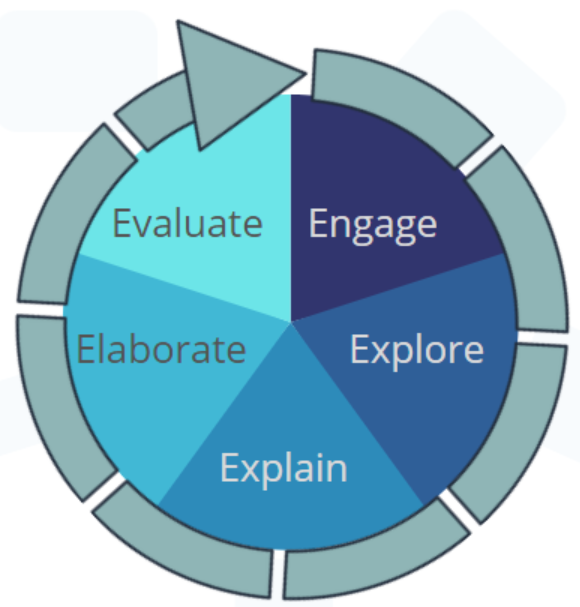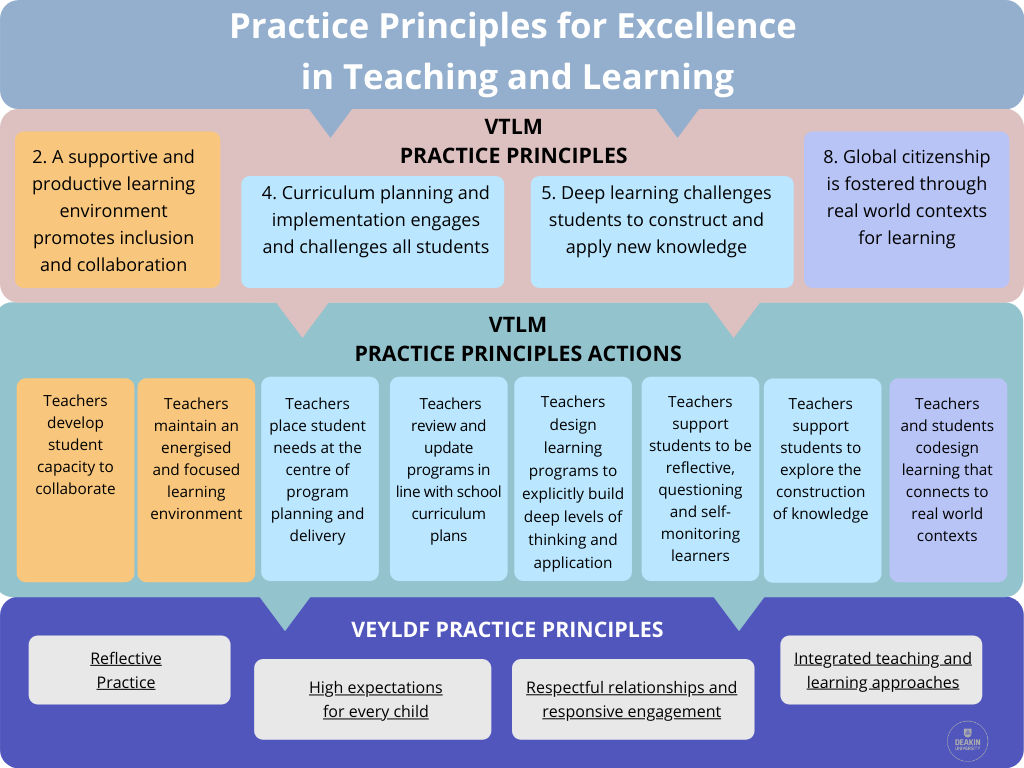Aligning with Victoria’s Pedagogical Model

Play-based and inquiry learning supports the effective implementation of the pedagogical model that aligns with Victoria’s vision for learning.
Explore information in the accordion below to learn more about how you can engage, explore, explain, elaborate and evaluate student learning through play and inquiry.
Play-based and inquiry learning five-part pedagogy
Engage
A play-based and inquiry approach draws upon each student’s funds of knowledge, capabilities and interests to foster a supportive, inclusive and stimulating environment for learning. In doing so, students are motivated, empowered and agentic learners.
Explore
In play-based and inquiry experiences, students are engaged in challenging tasks that require them to generate and investigate questions, gather relevant information and develop ideas. The teachers’ role is to help students expand their perspectives and preconceptions, understand learning tasks and prepare to navigate their own learning.
Explain
Play-based and inquiry learning experiences provide an opportunity for teachers to explicitly teach relevant knowledge, concepts and skills, in ways that connect new and existing knowledge with student’s interests and strengths. Students’ progress in learning can be monitored and they can be provided with structured or unstructured opportunities for practising new skills and developing agency through their play.
Elaborate
In play-based and inquiry learning experiences, teachers can engage in interactions with students that support reflection, questioning and self-monitoring. These interactions can challenge students to move from surface learning to deep learning, thus building their ability to transfer and generalise their learning.
Evaluate
Play-based and inquiry learning provides authentic experiences for teachers to:
- monitor student progress
- analyse data to draw conclusions about the effectiveness of their teaching practices
- identify areas for improvement and
- address students’ individual needs.
Assessment within a play-based and inquiry learning approach will be examined in more detail in Module 3.
Keep in mind
Explore Victoria’s pedagogical model in more depth within this
 handy resource (pdf - 786.52kb). You can also directly engage with the
Framework for Improving Student Outcomes to strengthen your knowledge and practice of planning in a play-based and inquiry approach.
handy resource (pdf - 786.52kb). You can also directly engage with the
Framework for Improving Student Outcomes to strengthen your knowledge and practice of planning in a play-based and inquiry approach.
Upholding Excellence in Teaching and Learning
The benefits of a play-based and inquiry learning approach, extend beyond a student's transition to school. You may find these modules helpful in supporting you and your colleagues to implement a whole school approach to play-based and inquiry learning.
In Module 1 you were provided with an infographic poster that formed connections between play-based and inquiry learning with Practice Principles. Each module will provide a similar poster that aligns the key content of the module, directly with the relevant Practice Principles. Explore the links between the teacher’s role and Practice Principles in a play-based and inquiry learning approach in the poster below.
Practice Principles for Excellence in Teaching and Learning poster

 Downloadable version of the VLTM and Practice Principles infographic (pdf - 75.13kb).
Downloadable version of the VLTM and Practice Principles infographic (pdf - 75.13kb).